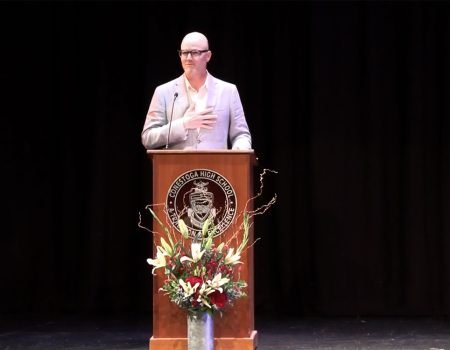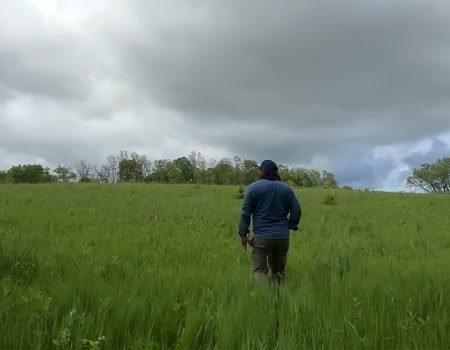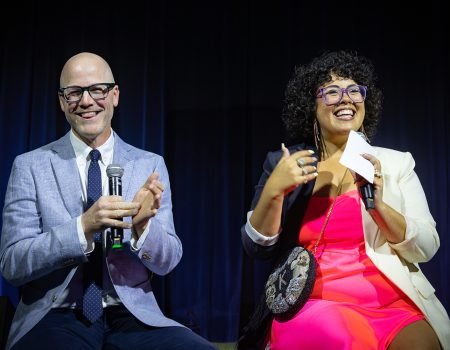That God Shaped Hole
I am staring out the window, watching the city pass me by, when I tell her that I feel old and irrelevant.
Abbi and I are in the back of a yellow cab. The clock is creeping towards one o’clock. We’re on our way back uptown from Jeff Jacobson’s CD release show at Rockwood.
We arrived late, waylayed by an errant M train. Jeff was already on stage. The room was packed. Casey was — for once — playing the role of Jeff’s sidekick. Both were beaming brightly. We wedged ourself into a corner by the door, ordered a drink, and did our best to bob and weave to the beat, space notwithstanding.
Jeff is a remarkable guitarist. He possesses a smooth, understated tenor. He is, without a doubt, Casey and The Heavyweights’ secret weapon. His songcraft, sharpened by years of note-for-note transcription of songs by everyone from Metallica and John Mayer, is next-level good. His chord changes and forms are well beyond what Bono calls “three chords and the truth.” Which is not to say that Jeff’s songs lack truth. They don’t. They’re painted with a broad lyrical brush that is at once universal, and succinct. Moreover, though, Jeff is a sweetheart: immensly talented, mild-mannered, and humble.
Standing there in the corner, though, for the third time in as many weeks, I felt woefully lost. Here, a musical community was burgeoning: Jeff, Casey Shea, Was Hutchinson, The Heavyweights, Family Records. It is everything I wished for when I moved to New York in 1994: rock ‘n roll, comradery, support, brotherhood. I’m am proud of them, and happy for them. But it’s not mine. It’s theirs. I’m the guy in the suit. I’m the elder statesman, the also-ran, the sell out.
I’m not sure they’d say that. In fact, I’m pretty sure they haven’t given it any thought.
I have.
I slept in this morning later than I have in months: 10:39. I got up and, before even putting on my glasses to see, began playing guitar for the first time in my new apartment… and for the first time in my new life.
I played a few chords, hoping to stumble upon inspiration, but my voice felt muted. No words formed on my lips. Through dreams, though, came the words and music of the elders, of my heroes…
Them’s got ears, let them hear
Them’s got eyes, let them see
Turn your eyes to the lord of the skies
Take this airline plane
It’ll take you home again
To your home behind the skies
I listened to my voice bounce around the empty, hardened room, feeling sadness and some relief in a song that I sang before I knew any better.
Now young faces grow sad and old
And hearts of fire grow cold
We swore blood brothers against the wind
Now I’m ready to grow young again
I slowed it down, arpegiated the chords, turned the lyrics sadder still, and let goosebumps wash over me.
And hear your sister’s voice calling us home
Across the open yards
Well maybe we’ll cut someplace of own
With these drums and these guitars
In the 1989 Conestoga Pioneer yearbook, adjacent to my photo, is printed the lyric, “Jerod sang his song a weapon in the hands of love.” It was all I could wish for when I was seventeen-years-old: to be some kind of wandering, musical poet fighting some Biblical fight against oppression, hate, and fear with only my music and my wit.
Just a few weeks ago, over eighteen years later, I came to find that my interpretation of the lyric — and the lyric itself — was wrong. “Jara sang,” Bono sings, “his song a weapon in the hands of one.”
The lyric is, of course, from “One Tree Hill,” the ninth track (and final single) off of the band’s 1987 smash, “The Joshua Tree.” The lyric doesn’t reference the Bible at all, but instead refers to Chilean folk singer Victor Jara. Jara was murdered shortly after the September 11, 1973, coup that brought Augusto Pinochet to power, transforming the man and his music into a symbol of struggle against military repression across Latin America.
In the book, “Bono In Conversation,” the U2 frontman tells his friend, Frech journalist Michka Assayas, that “A rock star is someone with a hole in his heart almost the size of his ego.”
“But it’s impossible to meet God with sunglasses on,” he says. “It’s impossible to meet God without abandon, without exposing yourself, without being raw.”
Last night, this morning, and still this afternoon — sun shining, windows thrown wide — I am exposed, and raw. And right now, I don’t know if anything will ever fill that hole.
Maybe it will pass. Maybe what’s left to should really does grow weightless. Maybe I will get used to it.
Or maybe I still have something to say.



